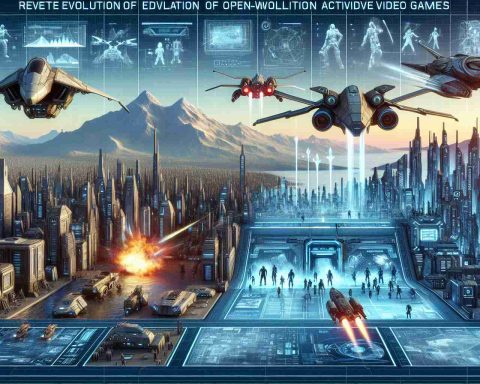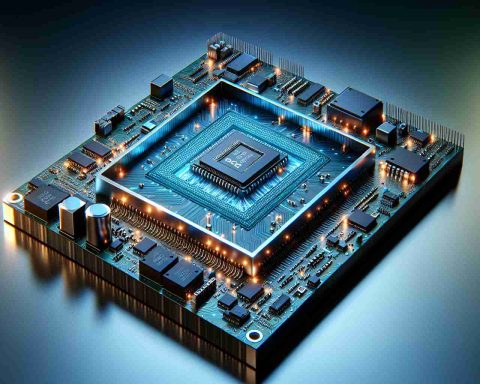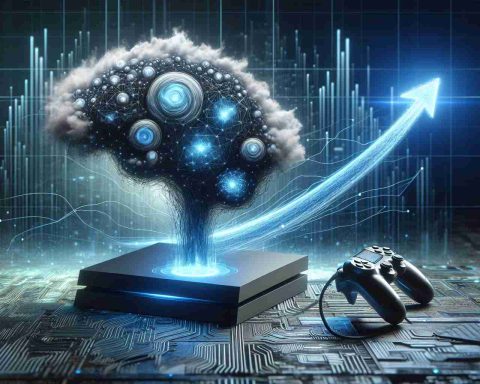The synergy between blockchain technology and the gaming industry has reached new heights, and one company stands at the forefront: MicroStrategy Incorporated, denoted as MSTR on the NYSE. Best known for its investments in Bitcoin, MicroStrategy’s strategic shift towards blockchain-based gaming could redefine how digital economies operate within virtual environments.
MicroStrategy’s Blockchain Expertise
Leveraging its deep-rooted expertise in blockchain, MicroStrategy aims to integrate decentralized ledgers to create secure, transparent in-game transactions. This new initiative seeks to allow players to trade virtual assets, expanding the scope of digital asset ownership. The move could empower players with true ownership of in-game items and create robust secondary markets.
Transforming In-Game Economies
MicroStrategy’s approach could address one of the biggest challenges in gaming: the proprietary nature of in-game economies. By implementing blockchain technology, the company envisions open-market ecosystems where game developers and players can interact financially in a decentralized manner. This could lead to the creation of universal currency standards across multiple gaming platforms, enabling unparalleled interoperability.
Look to the Future
If successful, MicroStrategy’s venture may influence other companies within the gaming sector to explore similar technologies, enhancing both the social and economic facets of gaming. As players seek more control and transparency over their digital assets, MSTR NYSE stands as a beacon, guiding the next wave of innovation in the virtual realm. This marriage of blockchain technology and gaming could define the future of digital entertainment, setting new standards for what players come to expect from their gaming experiences.
The Future of Gaming: MicroStrategy’s Blockchain-Backed Revolution
MicroStrategy’s Game-Changing Moves
MicroStrategy is charting a new course in the digital landscape by merging its blockchain expertise with the gaming industry. Known for its robust investments in Bitcoin, the company is now pioneering the application of decentralized ledgers in gaming, promising to transform traditional in-game transactions.
Features and Innovations
MicroStrategy plans to implement blockchain technology to enable secure and transparent trading of virtual assets. The company’s vision is to offer true ownership to players, allowing them to trade or sell in-game items as they would in real-world markets. Such innovations could facilitate the creation of thriving secondary markets where digital asset ownership is both meaningful and equitable.
Impact on Gaming Economies
One of the most notable aspects of MicroStrategy’s strategy is its potential to remodel how in-game economies operate. By making these economies less proprietary and more decentralized, the company envisions a system wherein both developers and players engage in financial interactions that are previously deemed impossible. This decentralized approach could lead to the development of universal currency standards across various gaming platforms, fostering a level of interoperability that significantly enhances user experience.
Pros and Cons
Pros:
– Enhanced Security: Utilizing blockchain ensures transactions and ownership details are immutable, reducing the risk of fraud.
– Player Empowerment: With genuine asset ownership, players gain real control over their gaming goods.
– Interoperability: Universal currency standards could simplify and expand cross-platform interactions.
Cons:
– Technical Complexity: Implementing blockchain at scale presents significant technical challenges.
– Market Volatility: The value of digital assets could fluctuate, affecting market stability.
– Adoption Barriers: There may be resistance from traditional game developers and players unfamiliar with blockchain technology.
Market Predictions and Trends
MicroStrategy’s foray into gaming could trigger a trend, prompting other gaming companies to adopt similar technologies. As more players demand transparency and control over their virtual holdings, the gaming industry might experience a shift towards decentralized, player-centric economies. The integration of blockchain could set new benchmarks for digital entertainment, encouraging developers to innovate and enhance gaming experiences.
Compatibility and Use Cases
The company’s blockchain solutions are expected to be compatible with a range of gaming platforms, including console, PC, and mobile gaming environments. This flexibility could uncover various use cases, such as limited-edition item sales, player-to-player marketplaces, and cross-game virtual economies.
For more information on blockchain technology and its potential applications, visit MicroStrategy.



















